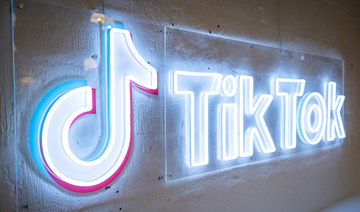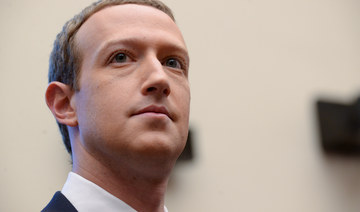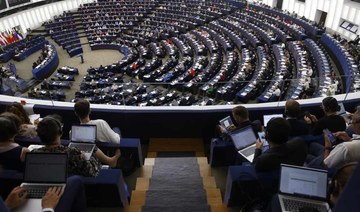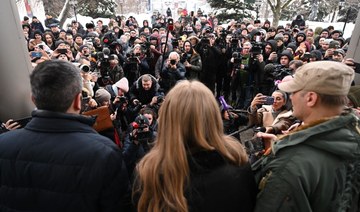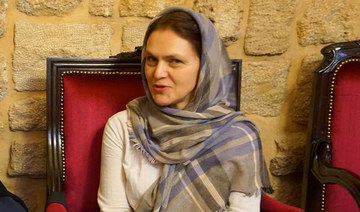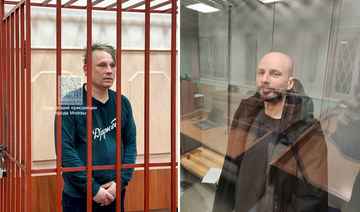RIYADH: Digital platforms have changed people’s lives across every area from work to play, and travel is no exception. Online and social media have changed how people discover destinations and deals, how they book their travel, and even how they share their travel experiences.
In Saudi Arabia, for instance, residents start dreaming about travel 10 weeks before their journey, with video and digital platforms inspiring 50 percent of their choice of destination, according to Fahad Almaghrabi, head of business partnerships at Global Business Solutions for TikTok in Saudi Arabia.
More than 70 percent of people look at TikTok for discovering travel ideas, while 64 percent book a trip after getting inspired by TikTok content, he added.
Arab News spoke to Almaghrabi to learn more about the role the short-form video platform plays in travel.
Tell us more about travelers today and how they have changed in the last decade
Over the past two decades, digital platforms have transformed how we live our lives, permeating every sphere of activity, and shaping how we interact with each other and the world around us.
This generation of “always-in market” travelers — dreaming, considering, or booking a getaway throughout the year — have also developed a penchant for a real and authentic travel experience, and that’s why they love going to their community for trustworthy travel inspiration.
Today’s intrepid travelers are just as keen to share their compelling stories and authentic visuals of journeys on entertainment platforms like TikTok, rounding off a creative cycle that in turn inspires countless others.
A study by Amp Agency found that 84 percent of millennials and 73 percent of non-millennials today were highly likely to plan a trip based on someone else’s vacation photos or videos or social media status updates.
How does this affect the way tourism destinations market themselves?
These authentic vignettes have re-ignited the demand for travel and significantly altered how destinations are being marketed globally, with travel and tourism marketers increasingly leveraging the opportunity presented by this new breed of digital platforms.
What role does TikTok play in this space?
This is a journey in which TikTok has taken the global lead as a disruptive platform with undeniable potential and momentum — and the Gulf and Middle East markets are no exception.
But TikTok’s success in becoming the platform of choice for travelers and in shaping digital travel and tourism trends across the industry is no happenstance.
Travel and tourism is a key segment of interest for a global and expansive hyper-engaged community of more than 1.8 billion users that straddles all markets and is growing at an astounding rate. This provides the perfect backdrop for TikTok to emerge as a platform where the community is primed not only to consume, but also to express themselves and tell their stories through authentic, visual, and geo-tagged content that is at once enticing and liberating.
This is enabled by easy-to-use editing tools, native content on the platform, and creators that fuel dynamic content.
This powerful combination of the medium and the message amplifies TikTok's power as a creative platform and enables it to be the internet’s repertoire of travel & tourism inspiration.
TikTok is that intimate, accessible, and inspirational window through which travelers take a trip before deciding if it’s worth it — the trip before the trip.
Can you give us some examples of how TikTok has influenced travel decisions?
While TikTok continues to induce FOMO in would-be travelers with content highlighting some of the world’s most beautiful and established destinations, there are also plenty of examples of TikTok’s effectiveness in driving a surge of interest to hitherto unknown destinations, which led to a dramatic rise in tourist footfalls overnight.
At least 83 percent of Saudi residents have either gone or plan to go on an international trip in the next six months with Egypt, UAE, and Turkey being the top short-haul and France and Germany being the top long-haul destinations.
HIGHLIGHT
Today’s intrepid travelers are just as keen to share their compelling stories and authentic visuals of journeys on entertainment platforms like TikTok, rounding off a creative cycle that in turn inspires countless others.
More significantly, 74 percent of users were found to look for travel discoveries on TikTok and 73 percent were found to have impulse purchased their trip in a short span of time.
What does this mean for brands?
With such lucrative figures at their disposal, brands can natively integrate into major travel conversations and leverage the community to speak with them, about them, and for them.
In essence, this represents a paradigm shift in the typical acquisition process for travel and tourism operators to stand out within an increasingly saturated ecosystem and collapse the sales funnel to move travelers directly from the “inspiration” phase to the “booking” phase.
Whether it’s the assortment of clever hacks, unadulterated advice, safety tips or the sheer visual appeal of short-format videos, the power of TikTok in shaping and inspiring the Kingdom's travel trends is an opportunity that could become a model for authentic and organic tourism in the years to come.
Can you share some examples of how TikTok has boosted the visibility of a tourist destination?
In a year of restricted travel, the UAE launched the “World’s Coolest Winter” campaign to highlight all the amazing sights and activities the Emirates has to offer.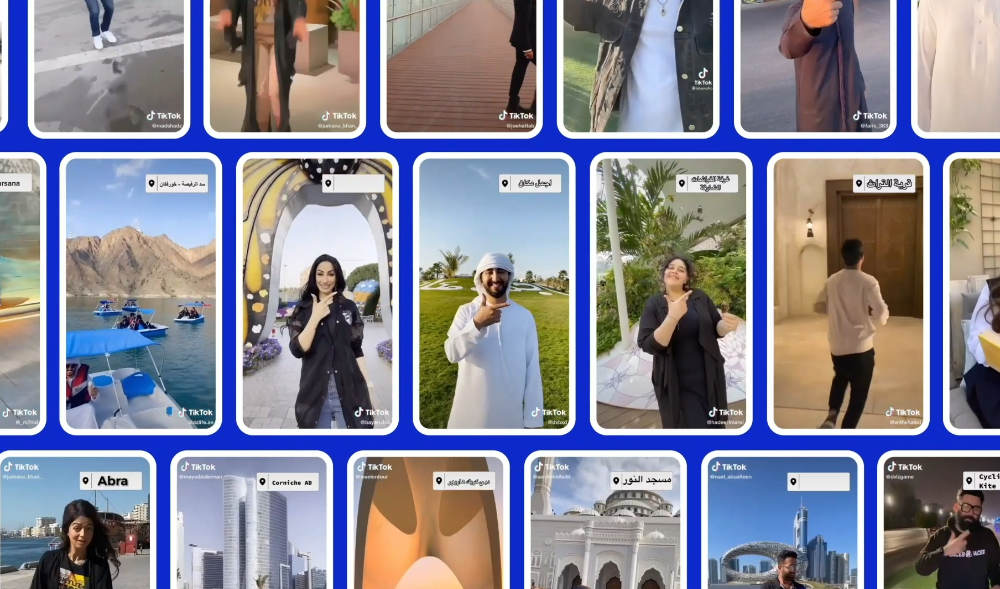
For the campaign to realize its full potential on TikTok, the ‘7’ was created, using one of TikTok’s recognizable hand gestures that looks like the number 7 in Arabic and symbolizes the seven emirates at the same time. The ‘7’ became a visual prompt that rallied residents to share their favorite hidden gems through a branded hashtag challenge.
The UAE’s top 20 creators kicked it off, including @khalidandsalama, @_m7md, @azlife.ae, @bayan.dxb, and @dxbxd – and the rest of the nation’s TikTokers soon followed.
The campaign took on a life of its own with 8,700 user-generated videos in just six days, creating a library of the UAE’s best-hidden spots and secrets available for all to explore.
The ‘7’ sign became a symbol of UAE pride, and the campaign delivered remarkable results, with a 25 percent jump in brand awareness, 85 percent increase in ad recognition, 89 percent boost in ad likeability, and over 70 million views. The campaign successfully got an entire nation smiling and moving at a time they needed it most.
Further west, TikTok was also utilized by Switzerland Tourism, the national marketing organization, to hype up the incredible country.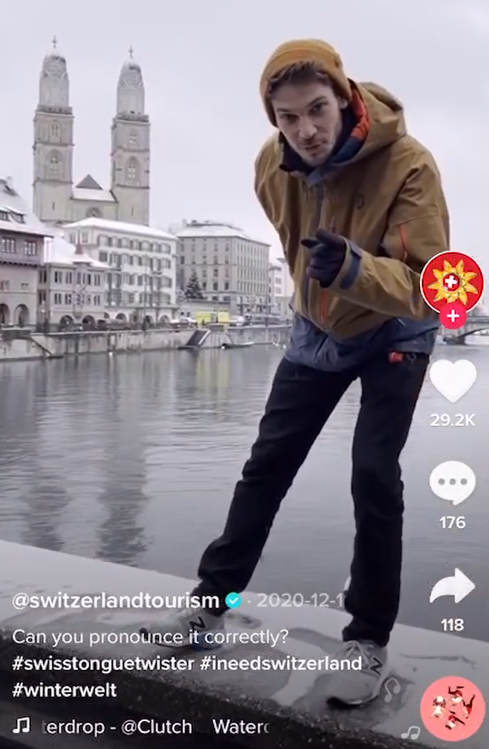
Switzerland Tourism spent the first six months of its business account building its following entirely organically, focusing on a test-and-learn strategy, to thoroughly understand how TikTok works.
As their established community responded well to its hashtags, #INeedSwitzerland, and #inLOVEwithSWITZERLAND, ads were a natural next step because paid campaigns would mean it could directly target a different demographic to learn more about them.
Doubling down on its popular hashtag #INeedSwitzerland, Switzerland Tourism ran its first ever TopView ad showing a three-way split screen of dramatic scenery and nature. Spurred on by this campaign’s success, it then ran three more seasonal TopView campaigns: A summer experience tips ad, a summer in the city ad, and a funny autumn-themed ad.
In just 12 months, Switzerland Tourism had driven huge momentum on TikTok, with over 700,000 likes across all its posts and a whopping 35.5 million hashtag mentions. Most of this was organic, with some videos going viral without so much as a penny behind them.
Its TopView campaigns have achieved average engagement rates of 20 percent, which is remarkably high and shows the power of a brand putting out brilliant content on TikTok.





